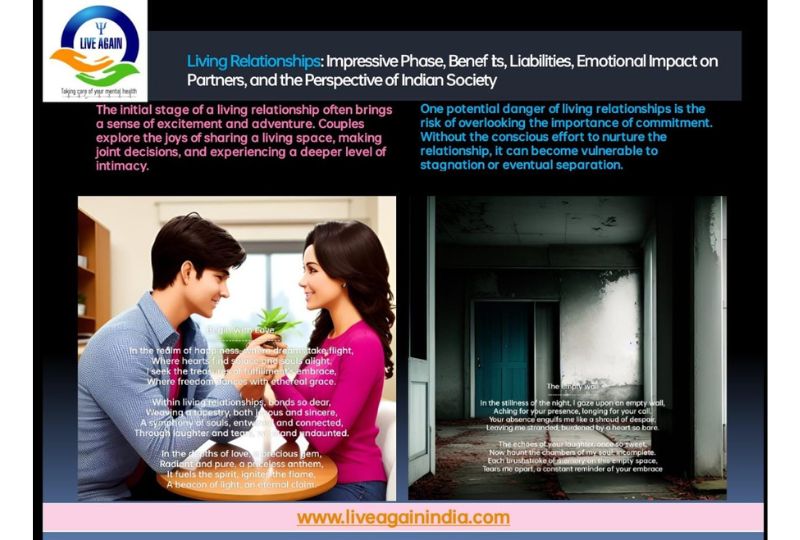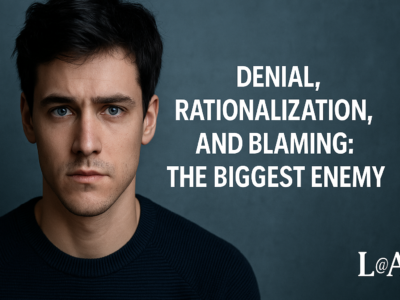Living Relationships: Impressive Phase, Benefits, Liabilities, Emotional Impact on Partners, and the Perspective of Indian Society
Living relationships, also known as cohabitation or domestic partnerships, have gained significant popularity in recent years as an alternative to traditional marriage. This article aims to delve into the various aspects of living relationships, including the impressive phase, benefits, liabilities, emotional impact on partners, and how Indian society perceives this evolving trend.
The Impressive Phase: The initial stage of a living relationship often brings a sense of excitement and adventure. Couples explore the joys of sharing a living space, making joint decisions, and experiencing a deeper level of intimacy. The absence of societal and legal obligations can foster a sense of freedom and autonomy, enabling partners to explore their compatibility without the formal commitment of marriage.
Benefits of Living Relationships
- Flexibility and Independence: Living relationships allow partners to maintain their individuality and pursue personal goals while enjoying the benefits of companionship and shared responsibilities.
- Emotional Support: Couples in living relationships often develop a strong emotional bond, providing each other with comfort, understanding, and support during challenging times.
- Financial Advantages: Sharing living expenses can alleviate financial burdens and provide a more stable economic foundation for both partners.
- Test for Compatibility: Living together allows couples to assess their compatibility, gain insights into each other’s habits and lifestyles, and make informed decisions about their future together.
Risk factors involves in Living Relationships:
- Liabilities of Living Relationships: Lack of Legal Protection: Unlike marriage, living relationships do not have legal frameworks to address issues such as property division, inheritance, or alimony in case of a separation.
- Social Stigma and Family Pressure: Indian society, which traditionally values the institution of marriage, may frown upon living relationships. Family and societal pressure can create emotional challenges and strain relationships.
- Emotional Impact on Partners: Living relationships can have a profound emotional impact on partners. The absence of a formal commitment can lead to feelings of insecurity or fear of abandonment. However, couples who communicate openly and establish clear expectations can navigate these challenges effectively. Emotional support, trust-building, and mutual understanding play crucial roles in sustaining a healthy living relationship.
- Danger of Overlooking Commitment: One potential danger of living relationships is the risk of overlooking the importance of commitment. Without the conscious effort to nurture the relationship, it can become vulnerable to stagnation or eventual separation. Regular communication, shared goals, and ongoing commitment are essential to ensure the longevity of the partnership.
- Perspective of Indian Society: Living relationships still face social stigmatization in Indian society due to cultural and traditional norms that prioritize marriage as the ideal form of commitment. However, attitudes are gradually evolving, and the younger generation is more open to alternative relationship structures. Legal reforms and changing social narratives are paving the way for a more inclusive society that recognizes and respects diverse forms of relationships.
Summary
Living relationships provide couples with an alternative path to companionship and commitment, allowing them to explore their compatibility before making long-term decisions. While they offer benefits such as flexibility, emotional support, and financial advantages, they also come with liabilities and potential emotional challenges. Indian society’s perspective on living relationships is evolving, with increasing acceptance and recognition of diverse relationship structures. As society continues to progress, it is important to foster open-mindedness, empathy, and respect for individual choices, ensuring that all forms of relationships are valued and supported.
Live your life with conscious understanding and conscious action. this is your life. make it beautiful. Explore your self with L@A
to be continue for more.



